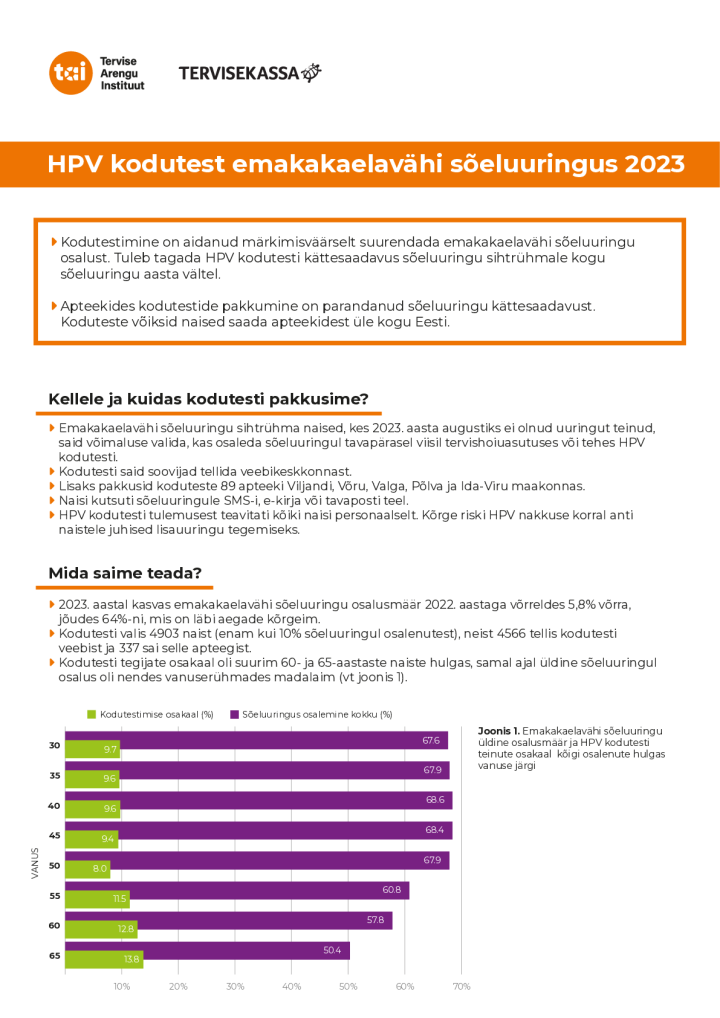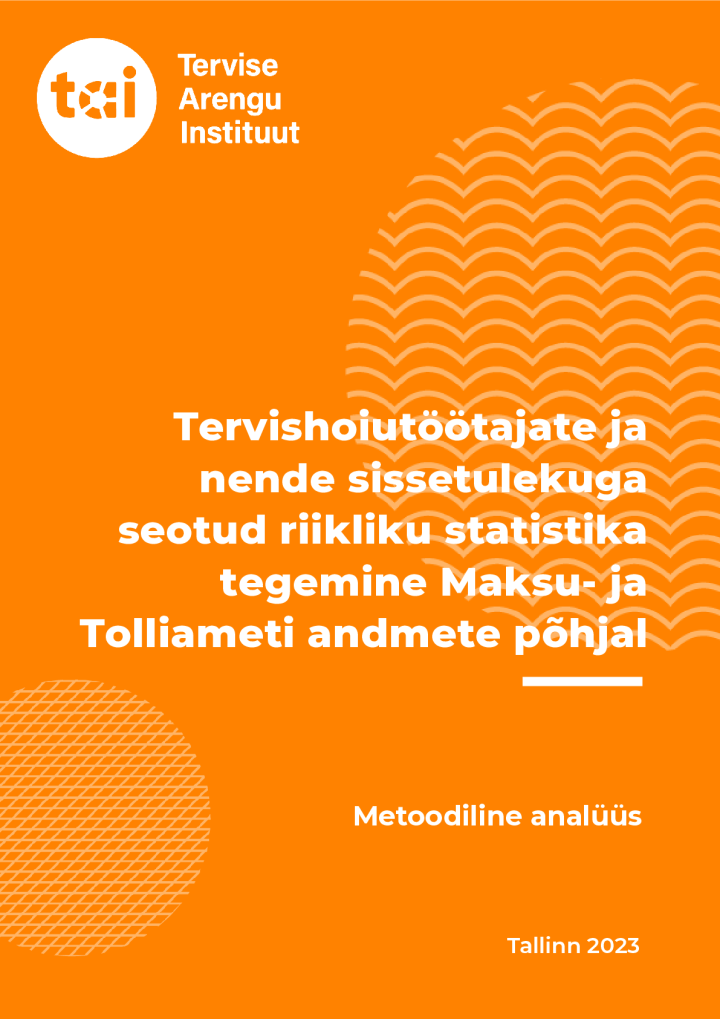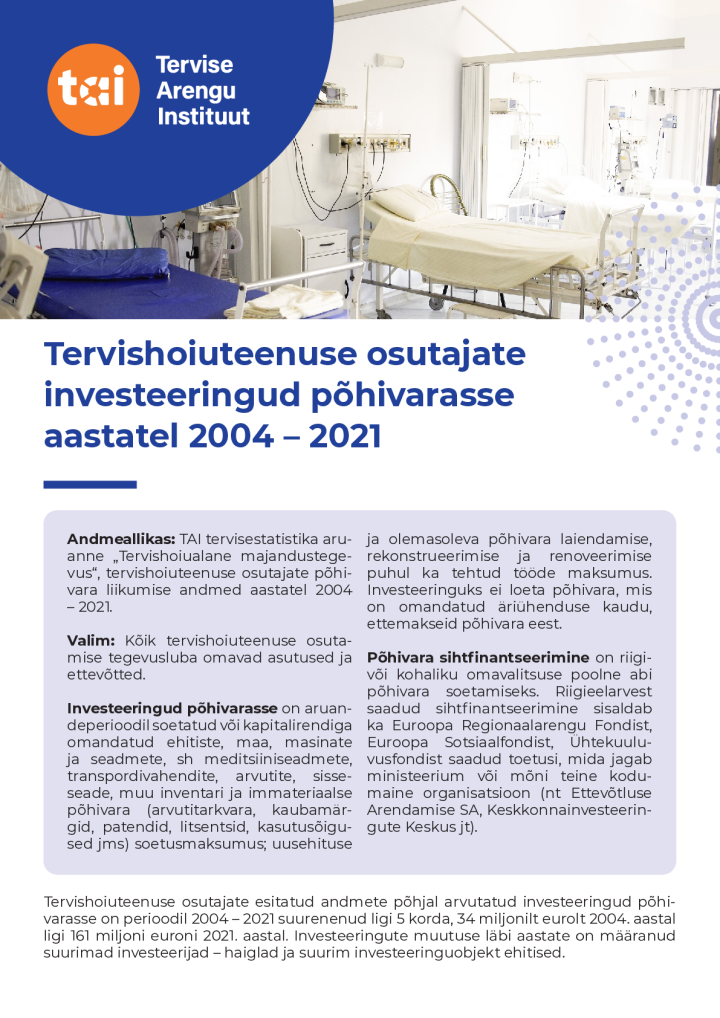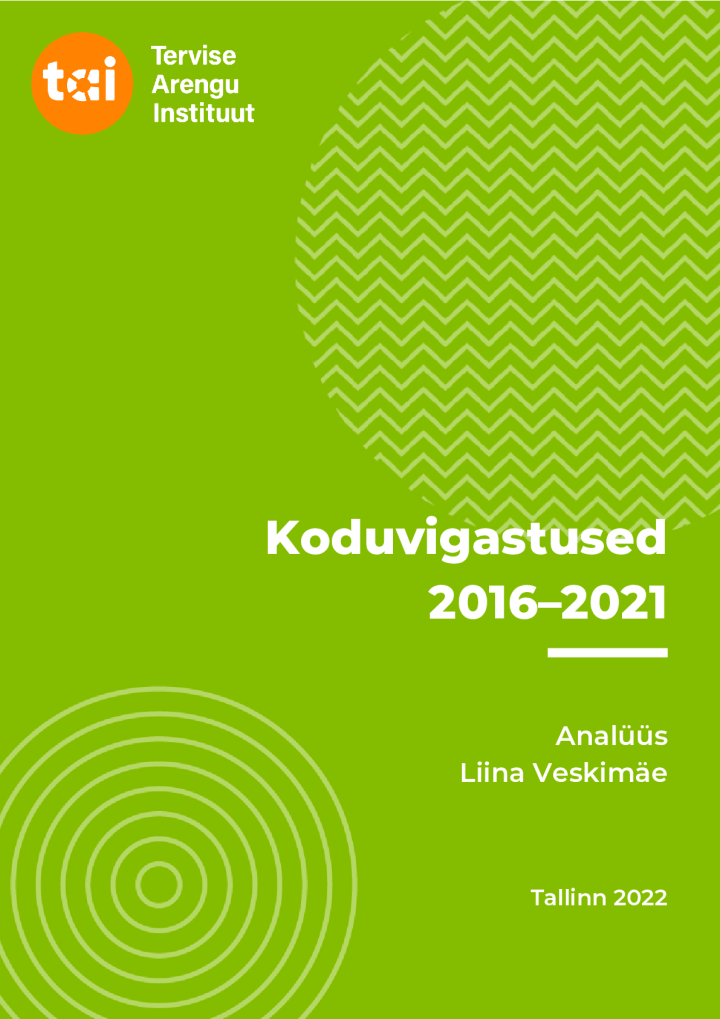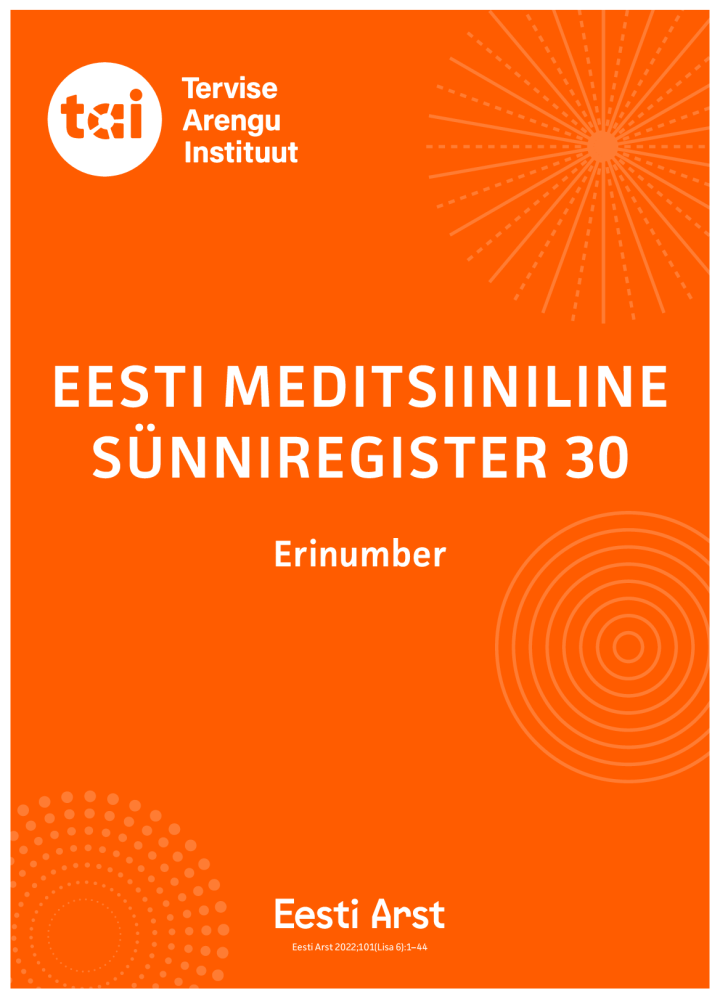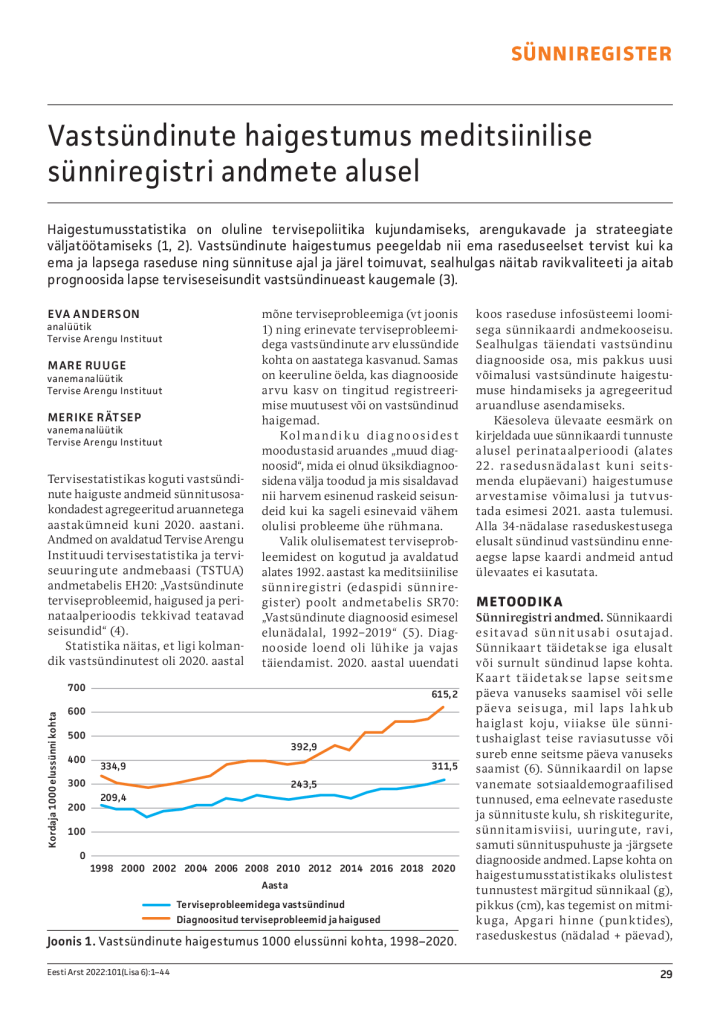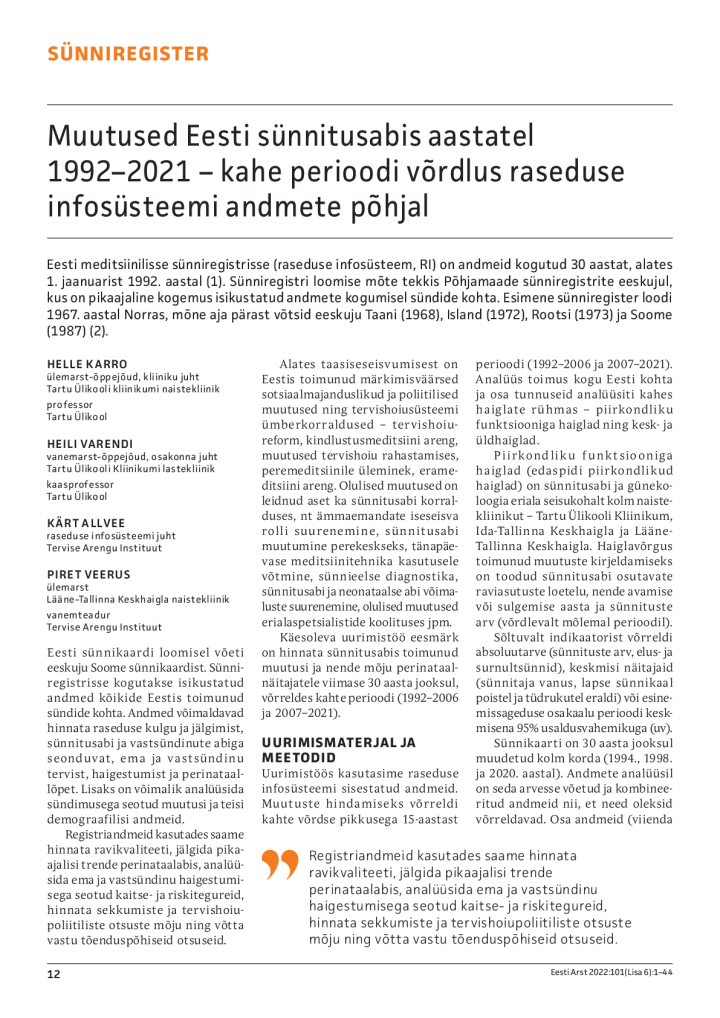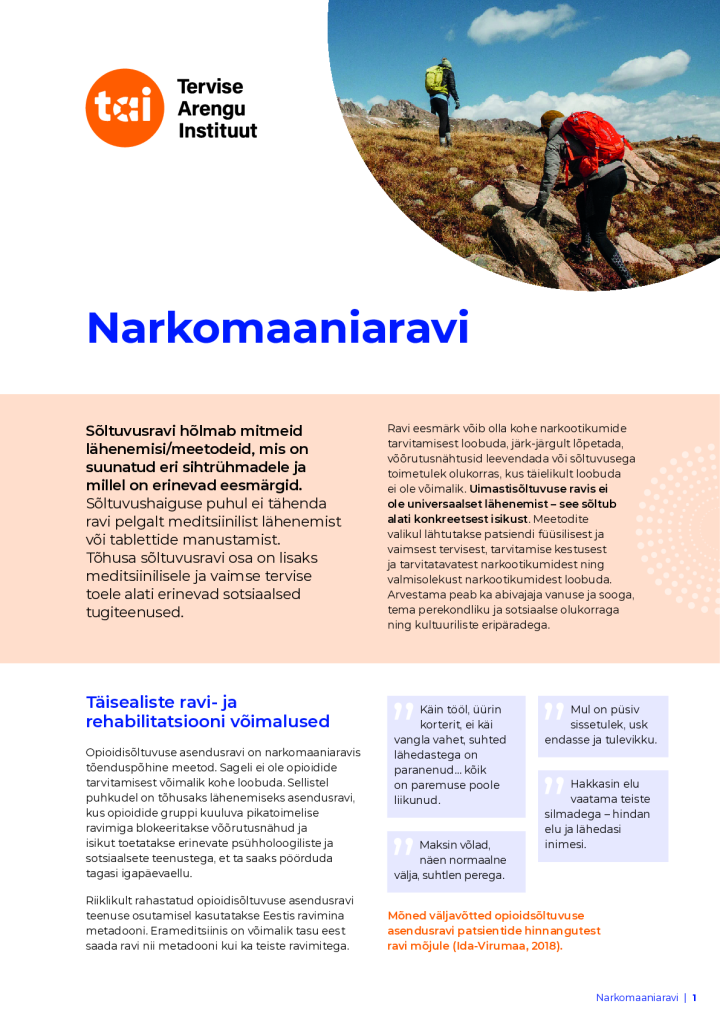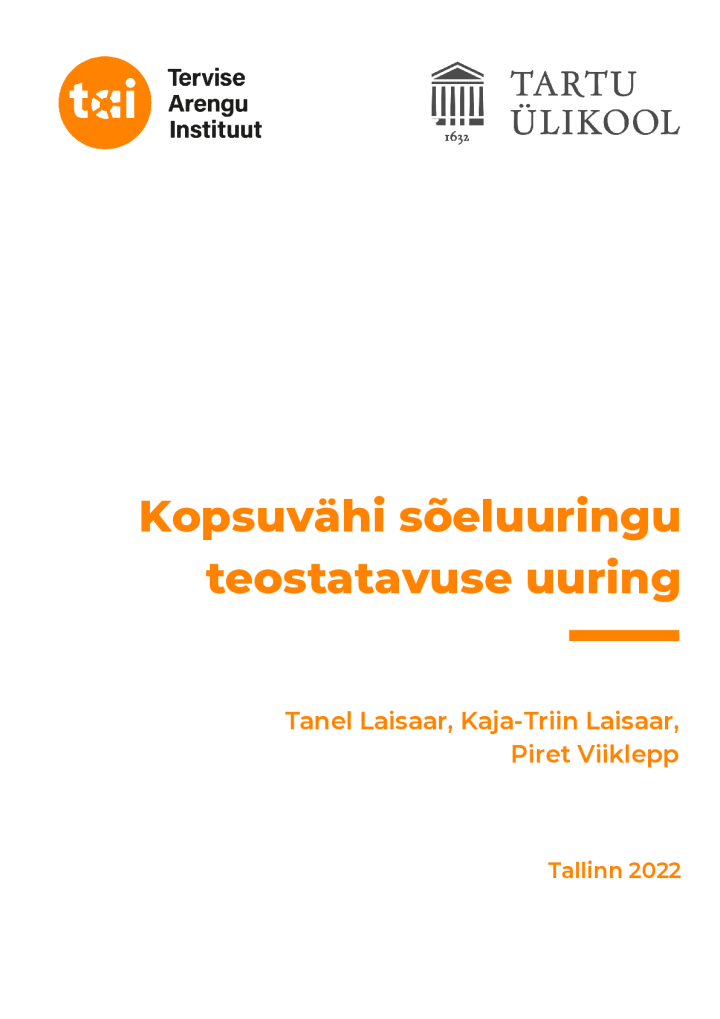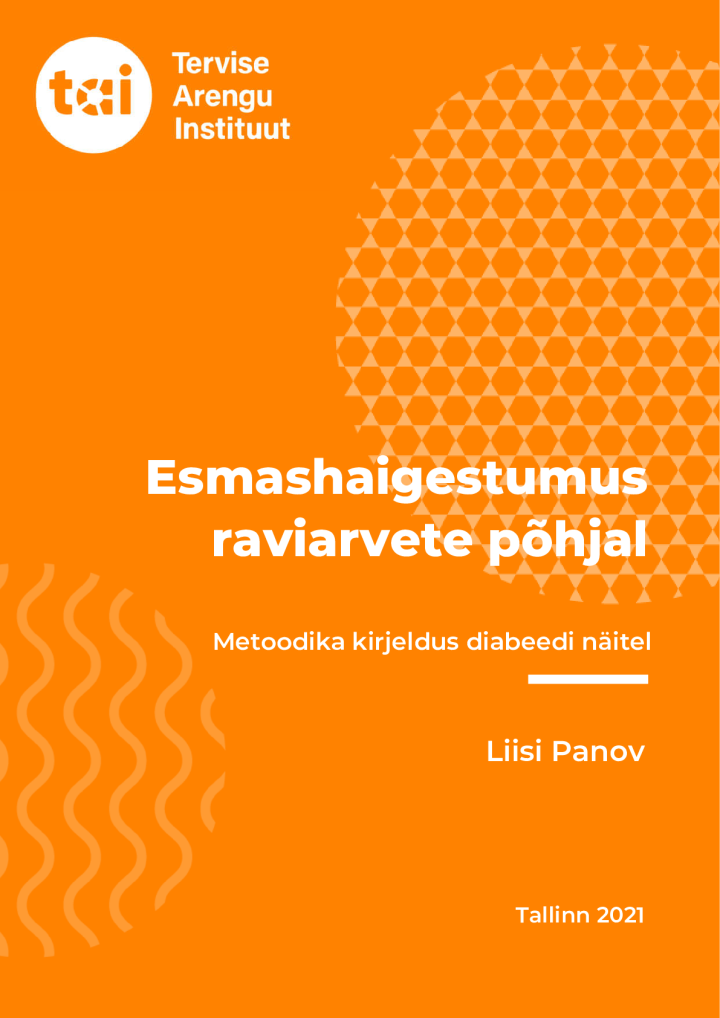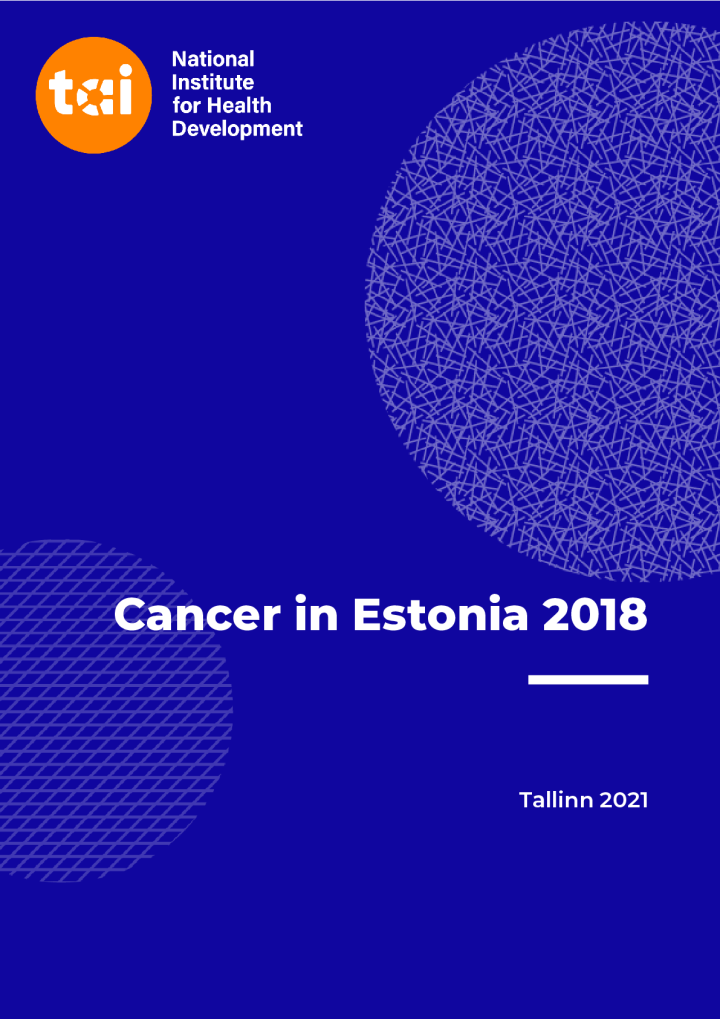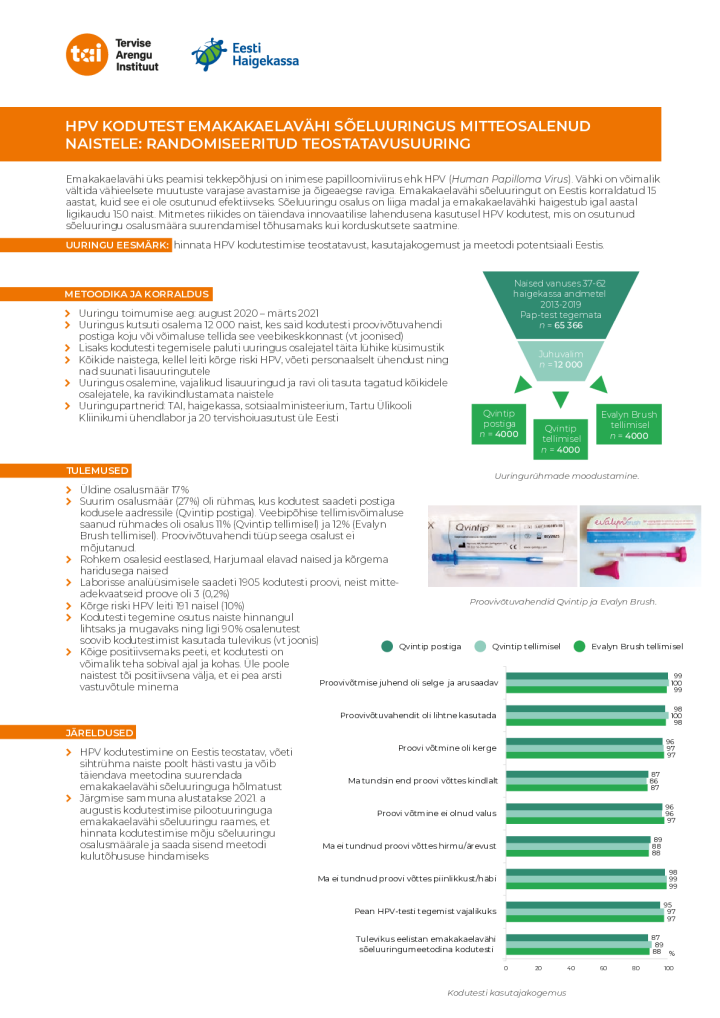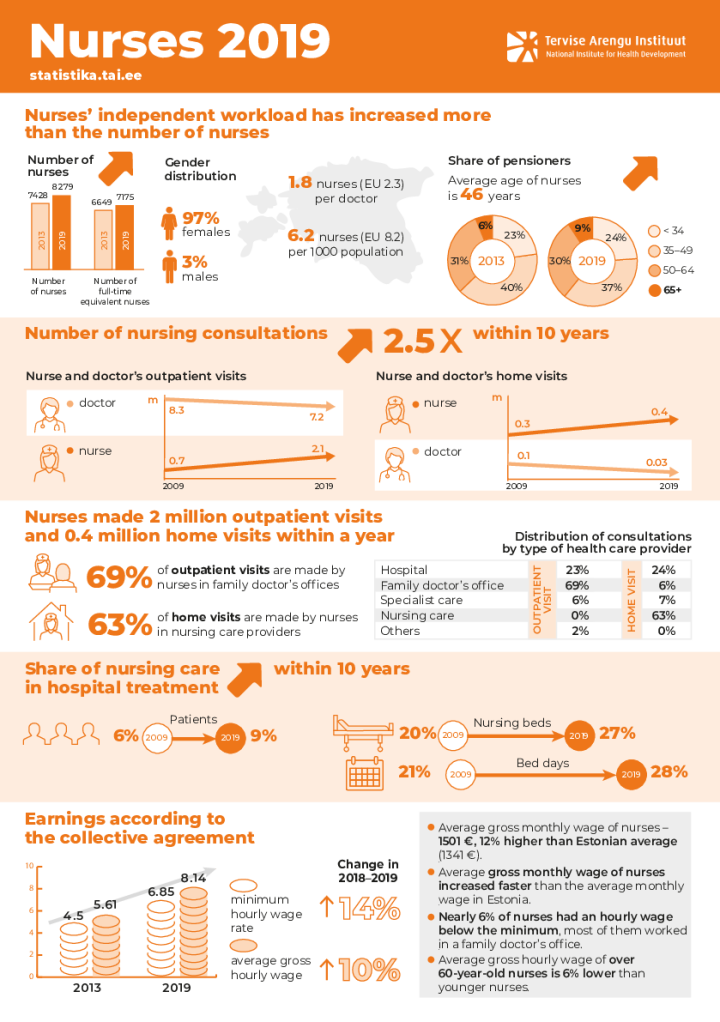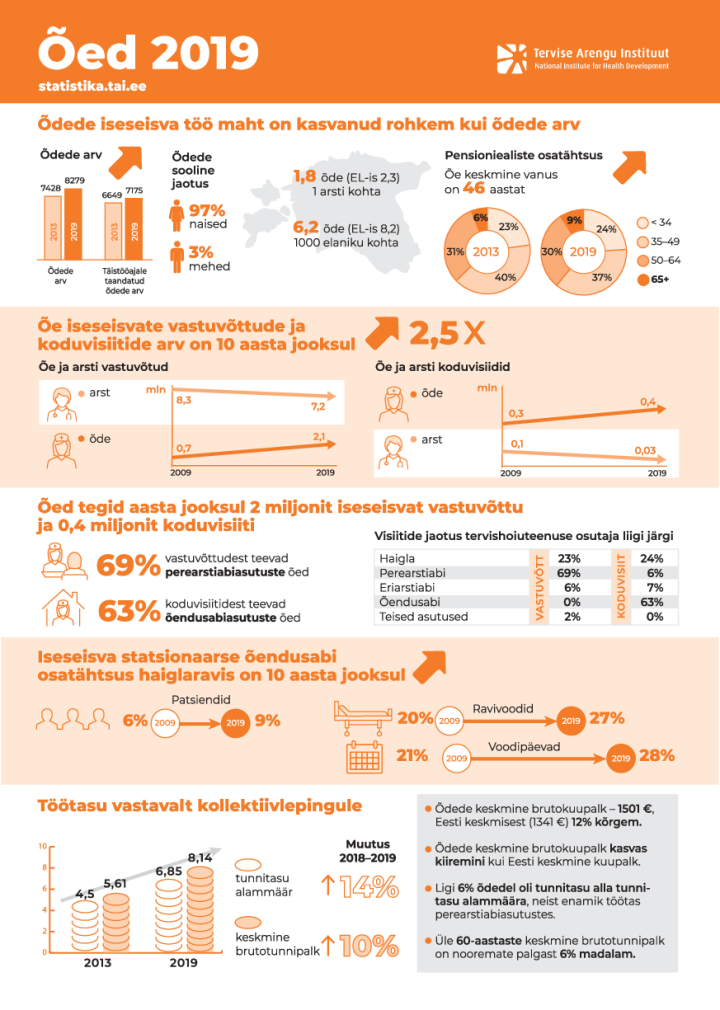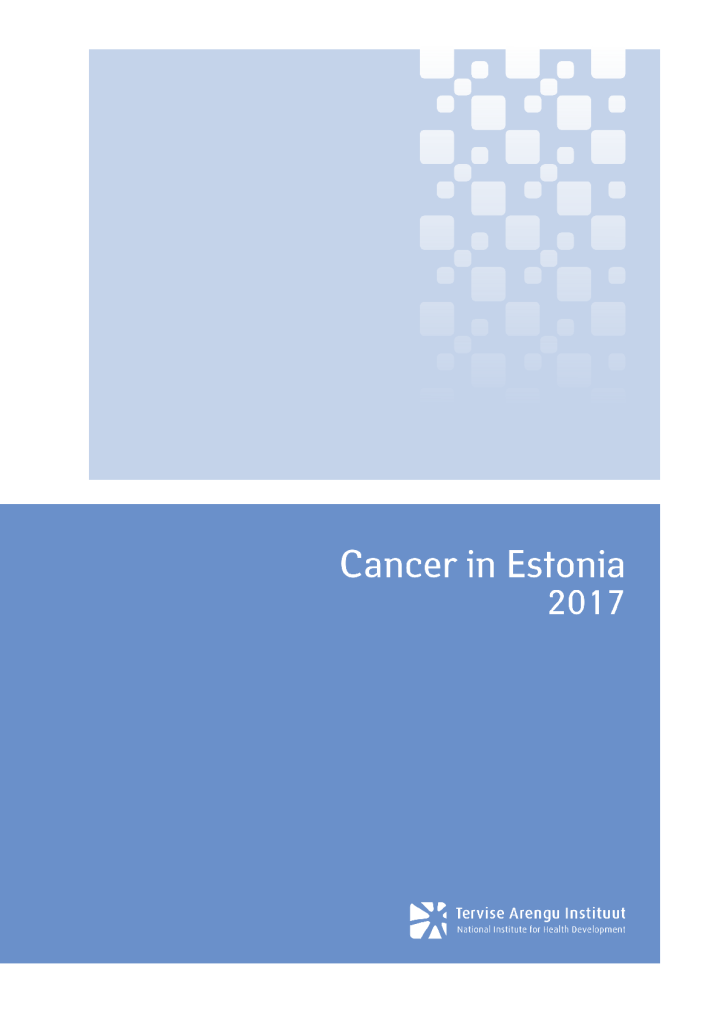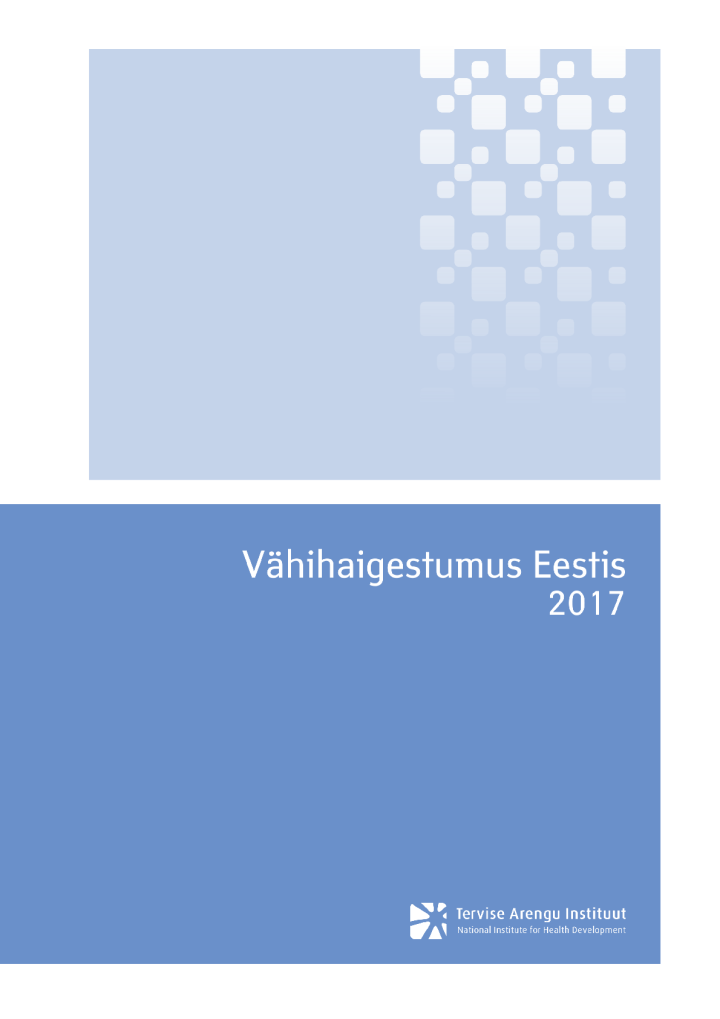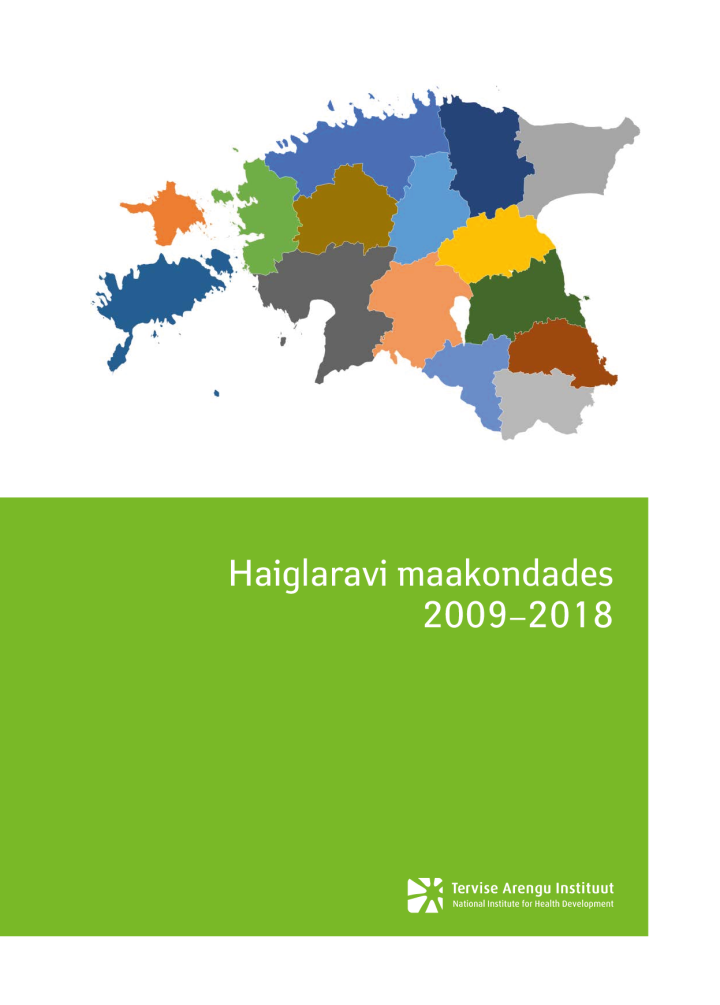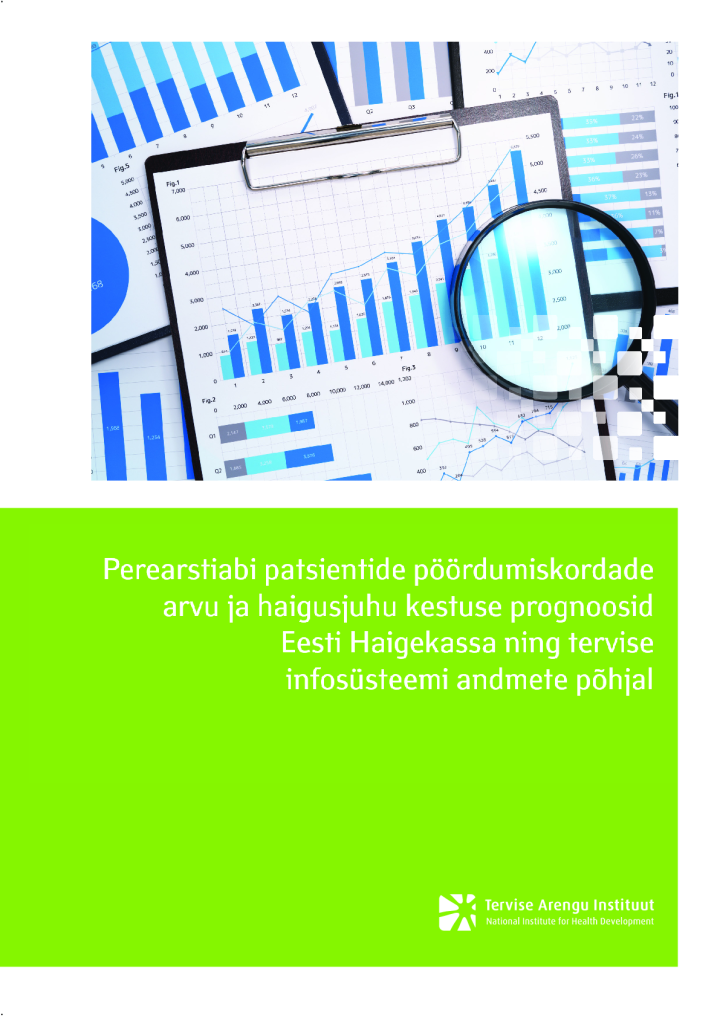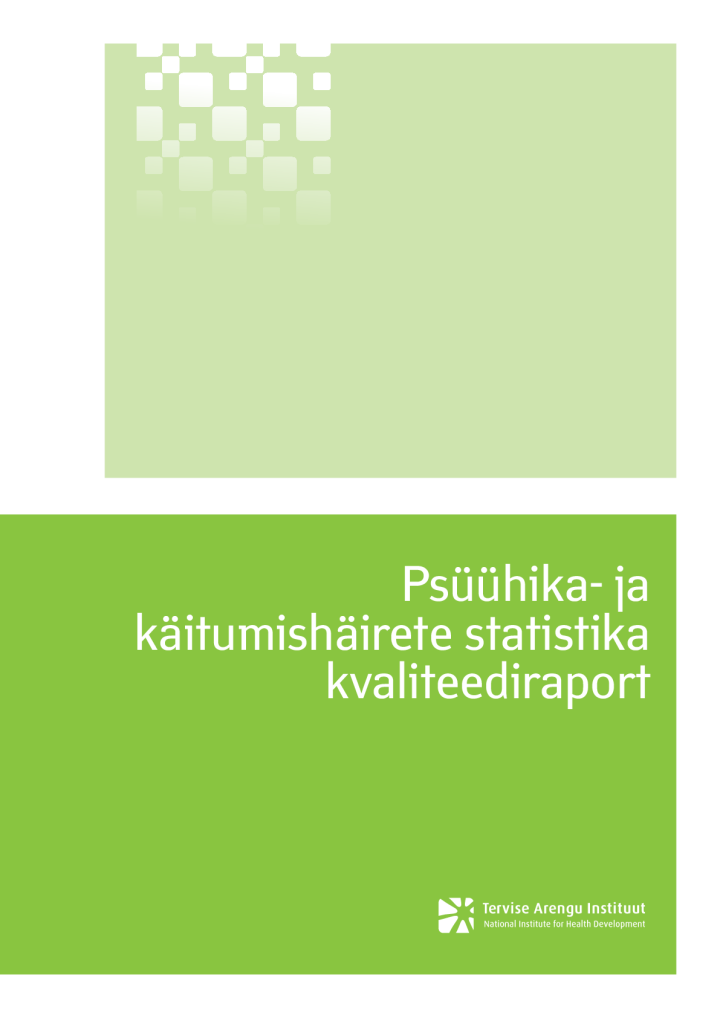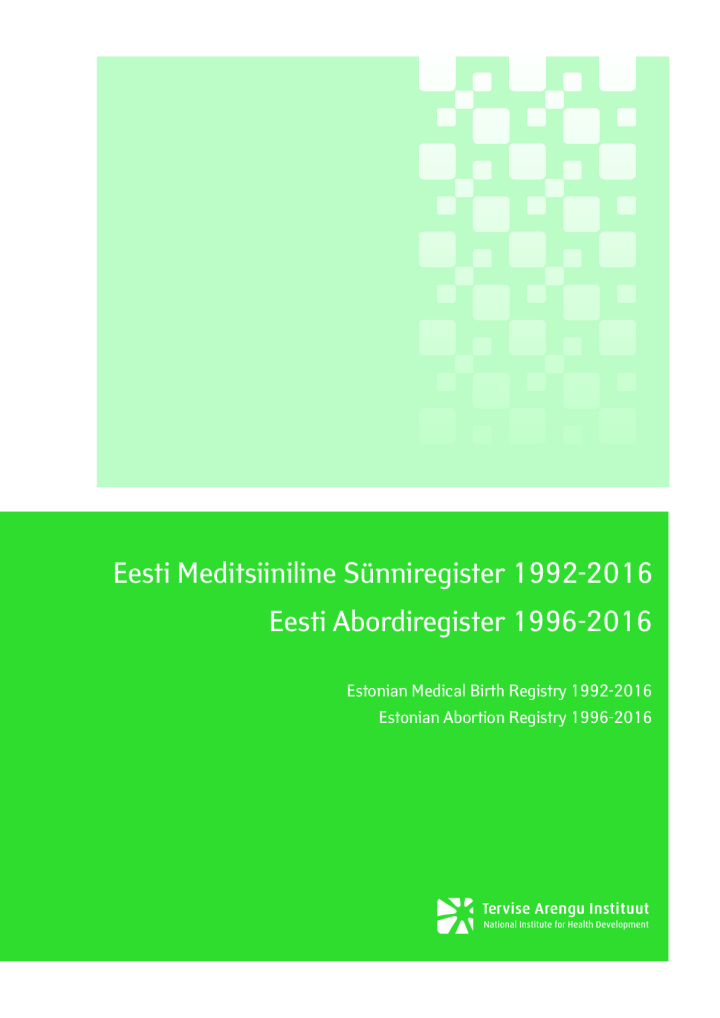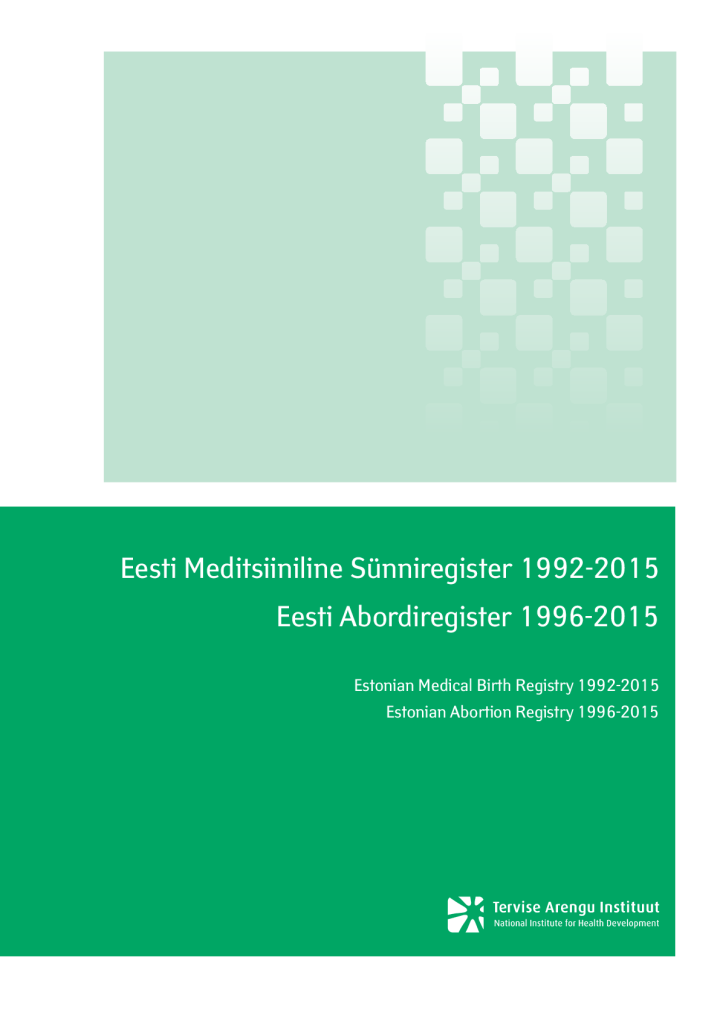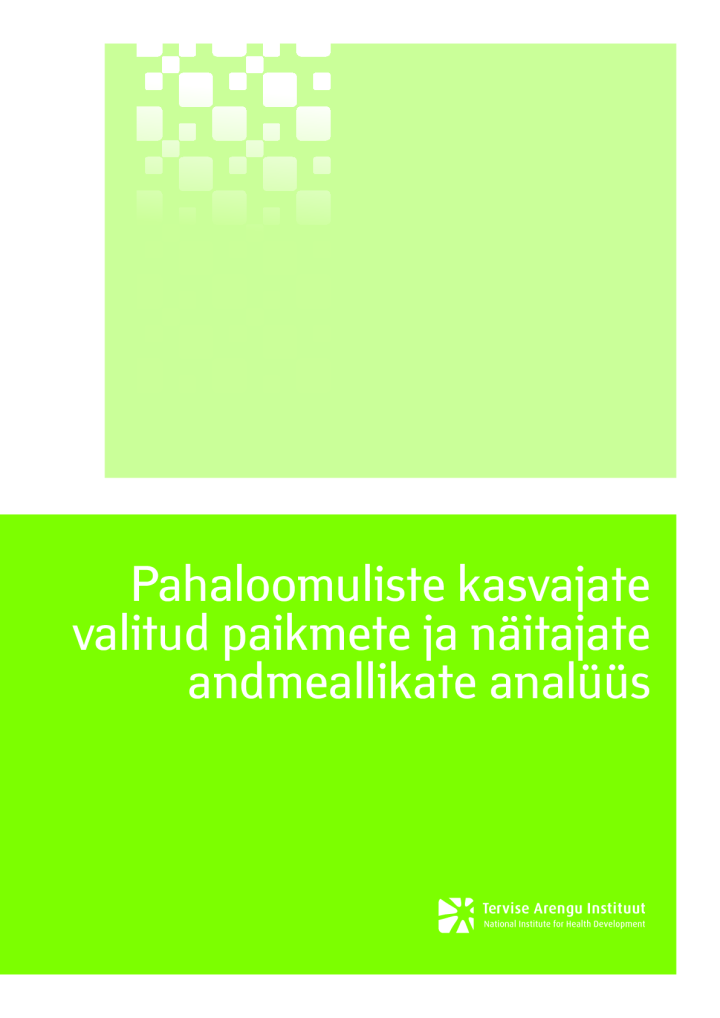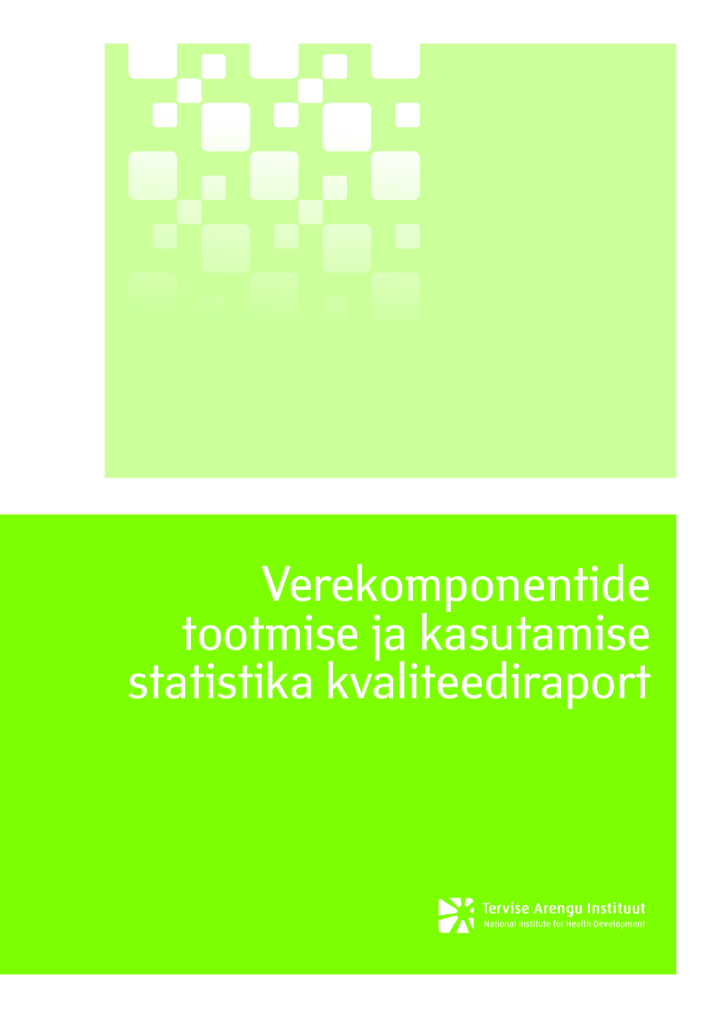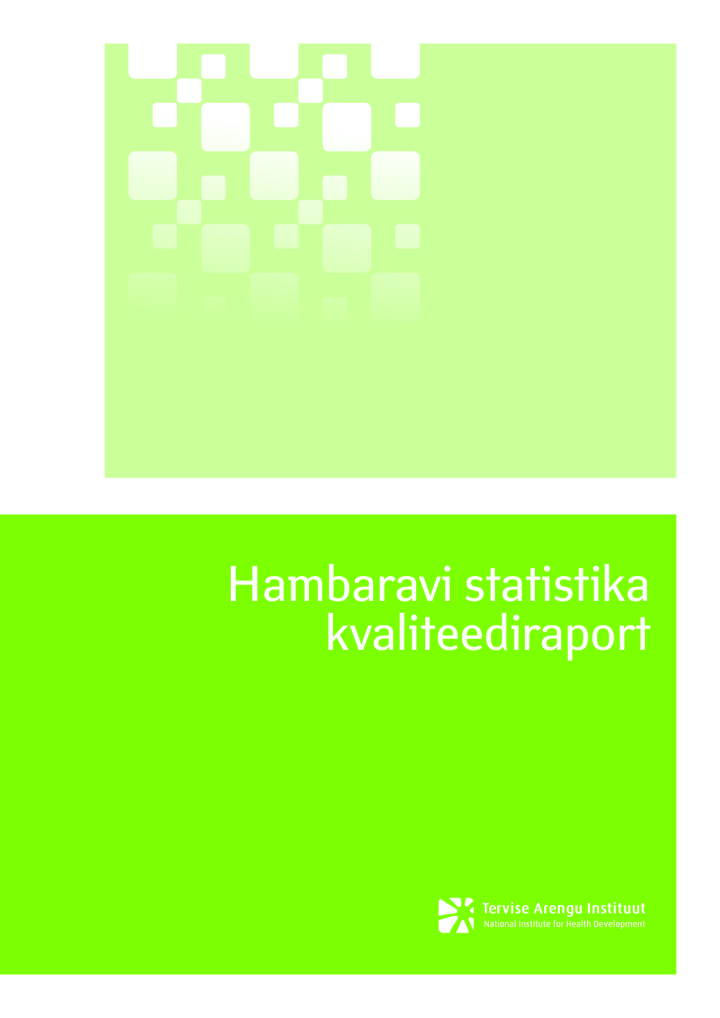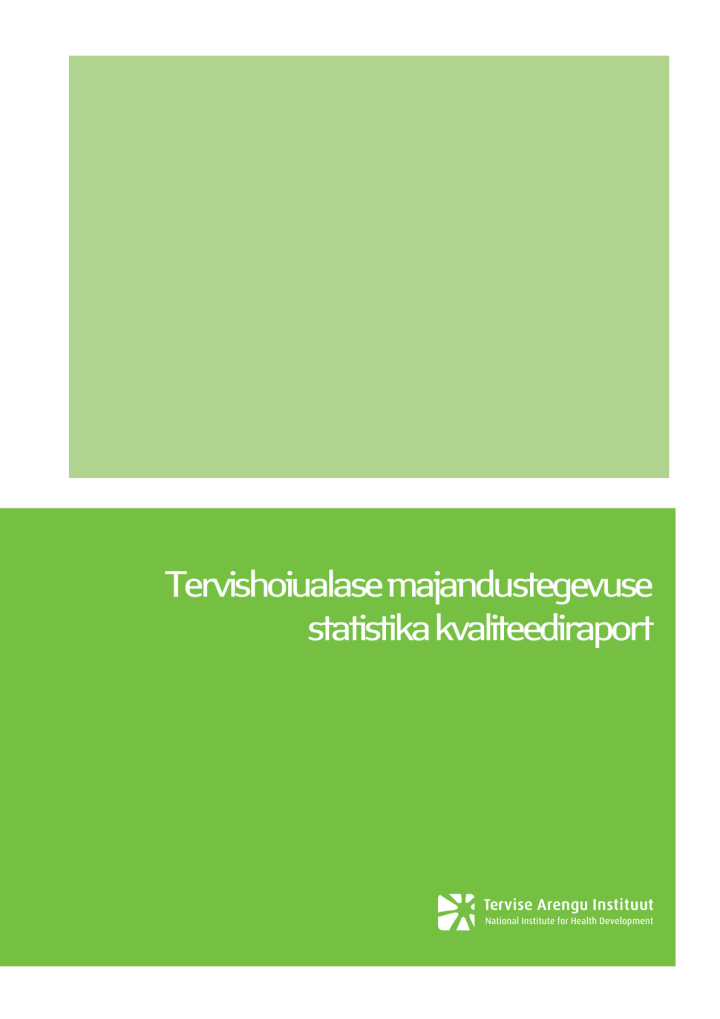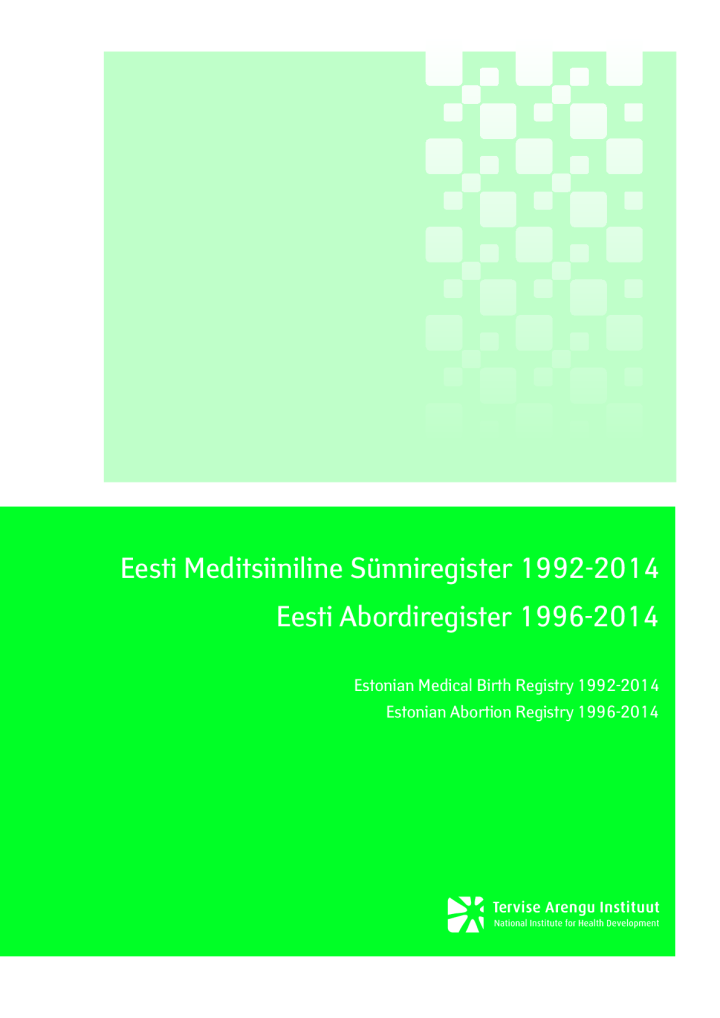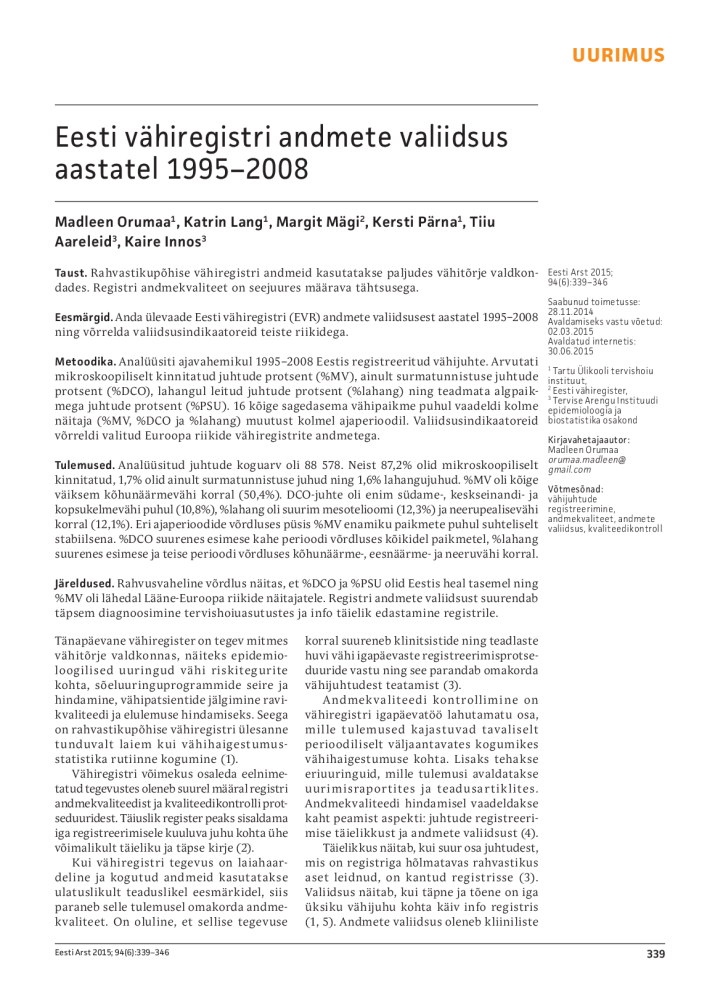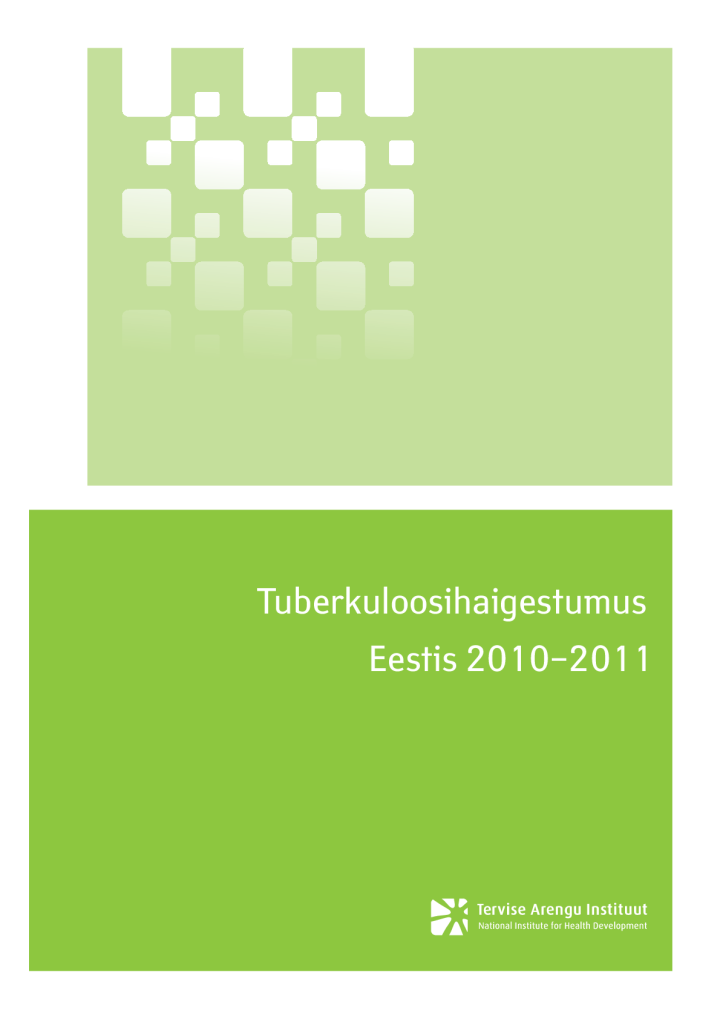Statistics and registers
As the main source of health and health care statistics in Estonia we collect and publish data on morbidity, health care use, causes of treatment and health care resources.
Health Statistics and Health Research Database
Our aggregated data is widely used in health and health expenditure analyses, both nationally (public authorities, research, development and education institutions, health service providers) and internationally.
- We regularly provide Estonian health and health care statistics to the European Union's statistical office EUROSTAT, WHO European databases Health for All, the cancer research agency GLOBOCAN, EUROCARE, OECD, and others.
- We manage the most representative collection of health data in Estonia, a database of health statistics and research.
Medical registers
The National Institute for Health Development manages six national medical registries and databases. Read more at the links below.
- Estonian Medical Pregnancy Information System
- Estonian Drug Treatment Register
- Causes of Death Register
- Estonian Tuberculosis Register
- Estonian Cancer Register
- Estonian Cancer Screening Register
Health statistics
Health statistics covers the health status and health behaviour of the population, the use of health services, and health resources and their utilisation. Health statistics has common features with population, social protection, welfare, occupational health and other statistics.
Data sources
We work closely with public and private institutions and businesses to collect and publish health statistics.
The main data sources for health statistics are:
- health care providers
- population-based surveys
- medical registers
- Estonian Health Insurance Fund medical bills
- Health Information System (TIS)
The aim of introducing the Health Information System as a data source is to move from the existing reporting of aggregated health statistics by health care providers to the production of personalised statistics. This will allow for a reduced burden on reporting agents, the provision of more varied and detailed statistics for consumers and an improvement in the quality of health statistics.
Data quality
The production of health statistics is guided by the principles and quality criteria set for national statistics.
Internationally recognised statistical principles are applied to ensure high quality statistics: professional independence, impartiality, statistical confidentiality, relevance, accuracy, reliability and accessibility. Data quality, coherence and unambiguity are based on common concepts, definitions and classifications.
Each respondent hasat all times the right of access to the data collected on him/her.
To ensure the quality and reliability of health statistics, we produce regular quality reports.
For a glossary of terms and definitions, please consult the Glossary of Health Statistics.
Publishing data
- Search for data in the Health Statistics and Surveys database
- View survey reports and analyses on our website

